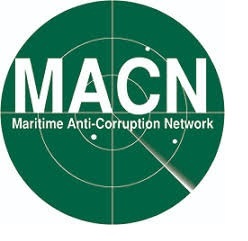Nigeria loses about $182,200 (N270.567 million) on each shipment of cargo into the country to maritime crime. This is according to data obtained from the Maritime Anti-Corruption Network (MACN).
The data shows that the impact of corruption in the sector adds about 15 percent to the cost of importing items such as food and bulk products into Nigeria.
The report detailed the results of a study developed by socio-economic impact assessment firm, Quantifying Business Impact on Society (QBIS) which applies a dollar value to direct and indirect costs of maritime corruption across the private sector, government, and society in Nigeria.
The report shows that government officials extract bribes from owners of consignments to carry out routine tasks, or ‘coercive’ corruption.
- First Bank confirms Alebiosu’s appointment as MD, Ini Ebong DMD
- WIOCC brings $41m digital infrastructure investments into Nigeria, S/Africa, DRC
The study revealed that corruption adds $147,000 per import shipment of grain and more than $187,000 per shipment of petrol. And that Food and petrol account for around a third of Nigeria’s imports.
“With 63 percent of Nigerians or 133 million people classified as multidimensionally poor, most Nigerian families do not have a budget surplus. Increased import costs due to corruption are therefore likely to reduce their household demand and make essential goods less affordable to the average Nigerian family,” the report said.
The business-as-usual scenario adds 1-2 percent to retail prices for grain and petrol.
“Maritime corruption results in an annual reduction in GDP of $204m, an annual reduction in revenue collected by Customs of $42m, and 235,000 fewer Full-Time Equivalent (FTE) jobs due to less sales and economic activity,” the report said.
The report also indicates a zero-tolerance approach to bribery during vessel clearance and that it cuts the damages caused by corruption by around 62 percent.
It showed that by slashing around $114,000 per shipment in corruption costs, the bill for marine corruption falls by around $100m per year, and its economic impact drops by $230m.
“By ‘Saying No’ to maritime corruption, GDP increases by about $130m annually, customs revenue from tariffs increases by $28m annually, and more than 147,000 FTE jobs are created due to more sales and economic activity across the supply chain in Nigeria,” said the report.
MACN said the combined efforts of industry and government have reduced corruption in Nigeria. Over 90 percent of corruption incidents are now resolved within 24 hours, it said, whereas a single case took between seven and 10 days before 2019. The average resolution time is now one to eight hours.

 Join Daily Trust WhatsApp Community For Quick Access To News and Happenings Around You.
Join Daily Trust WhatsApp Community For Quick Access To News and Happenings Around You.


